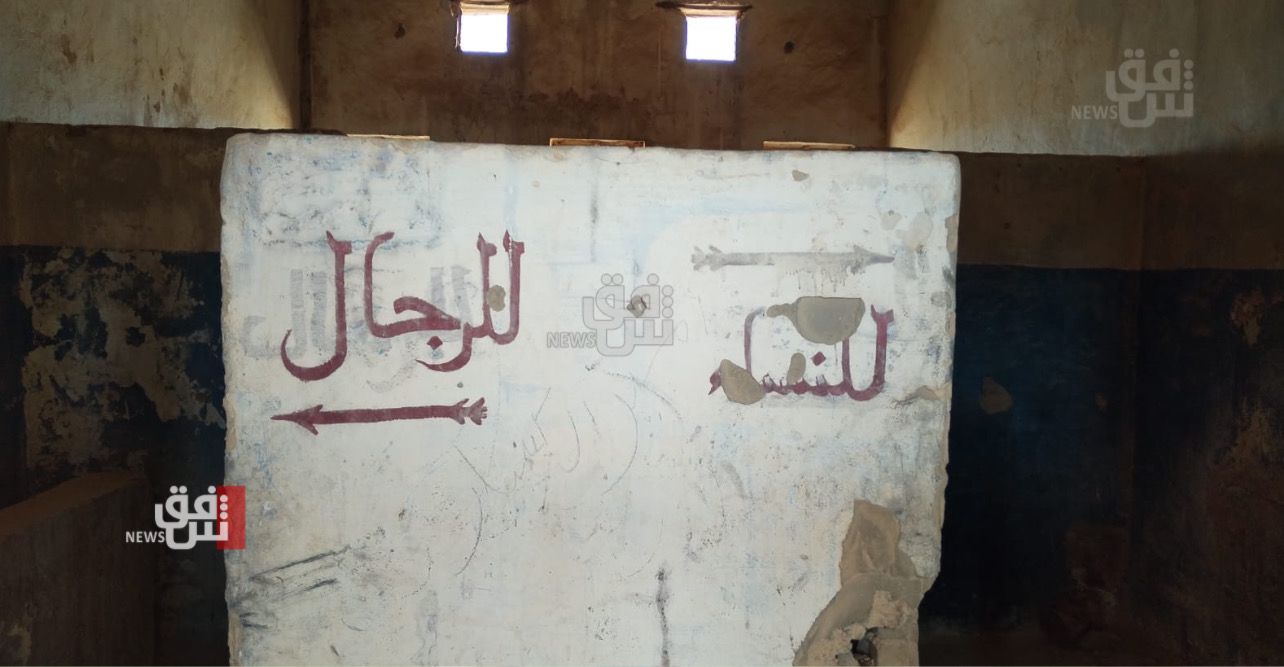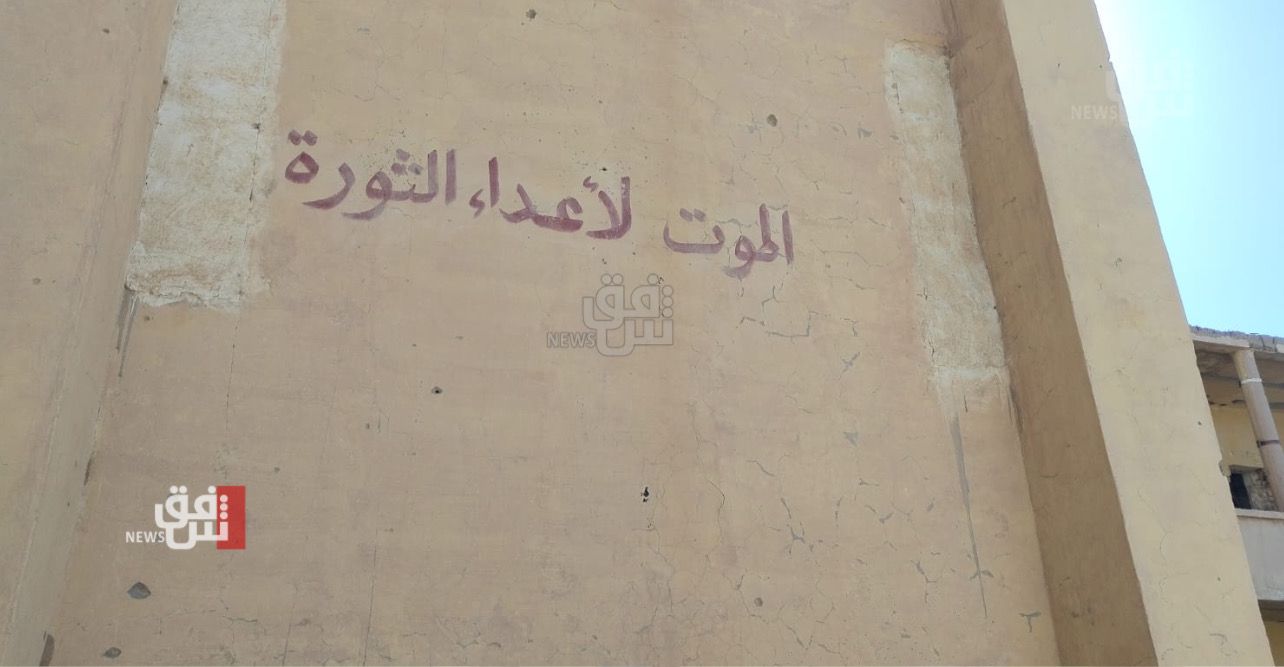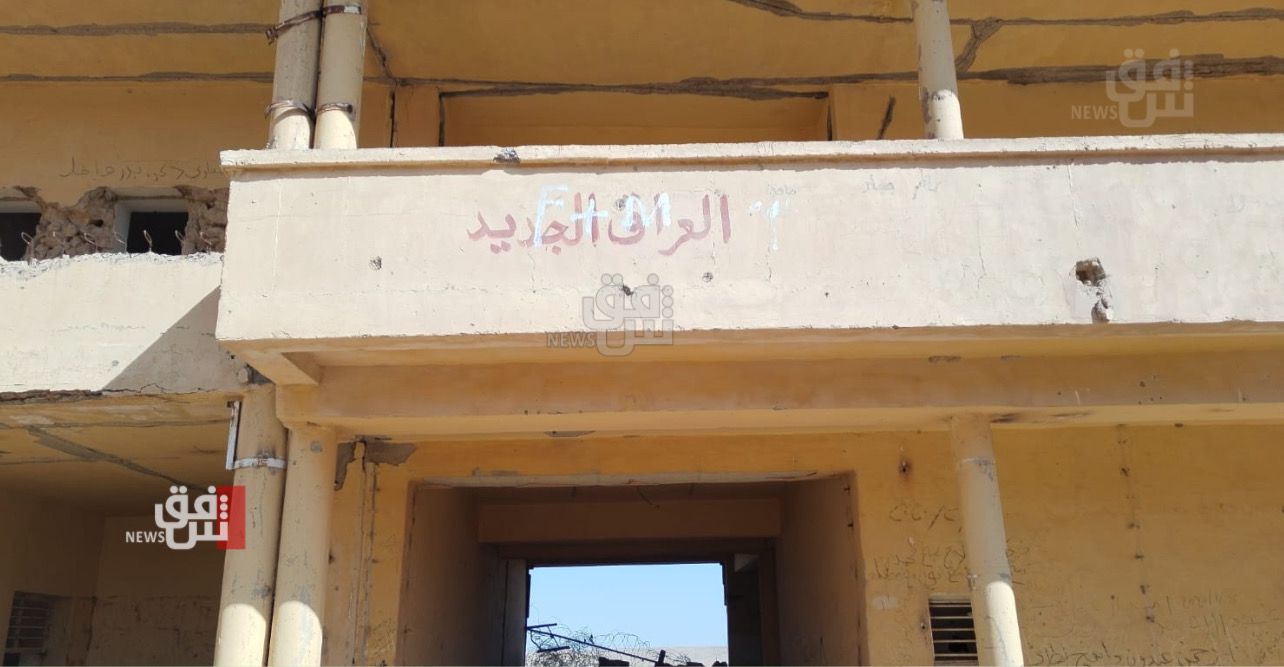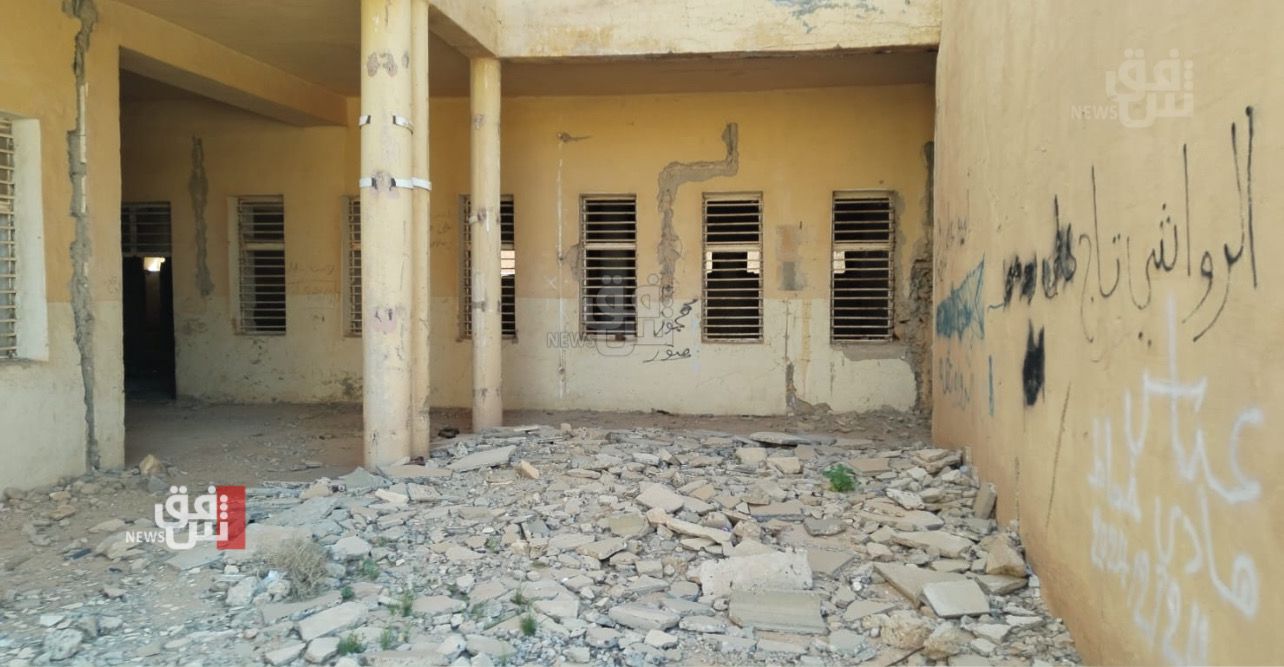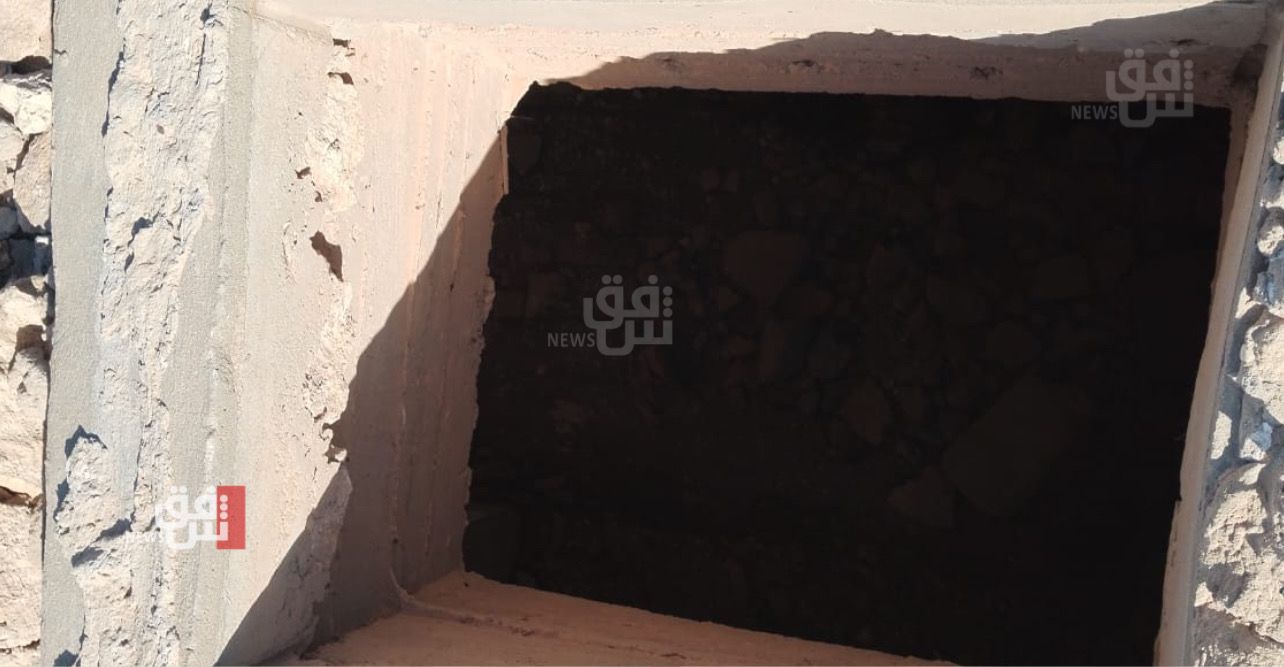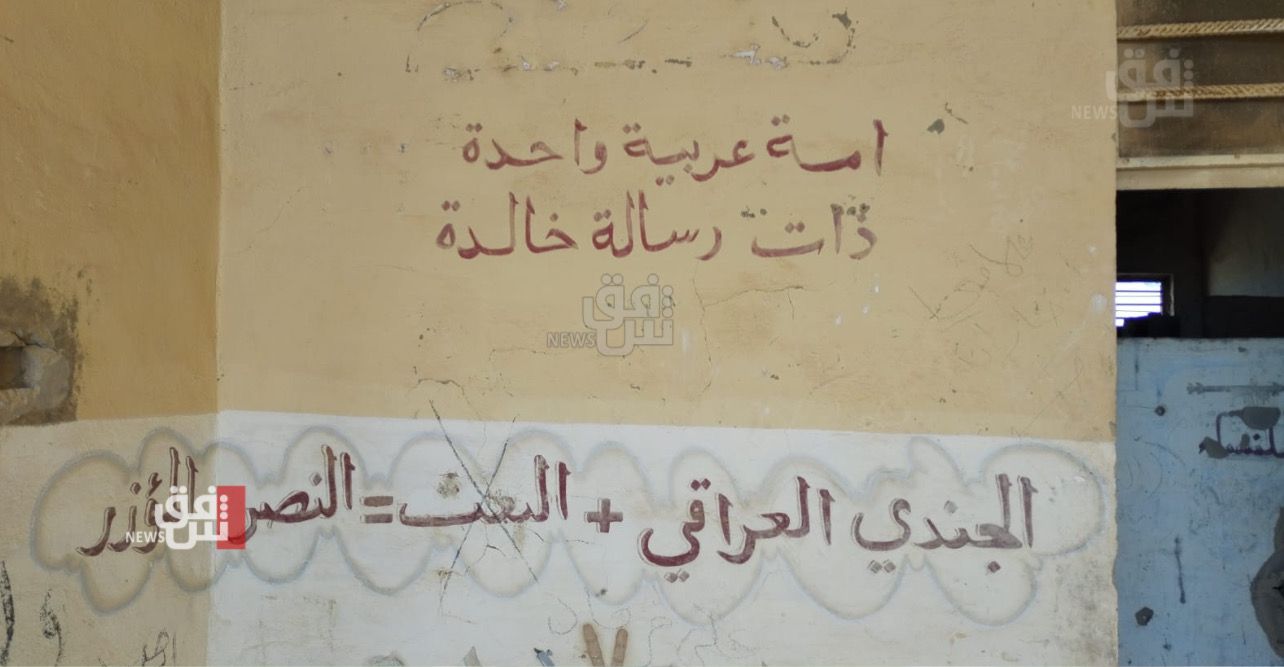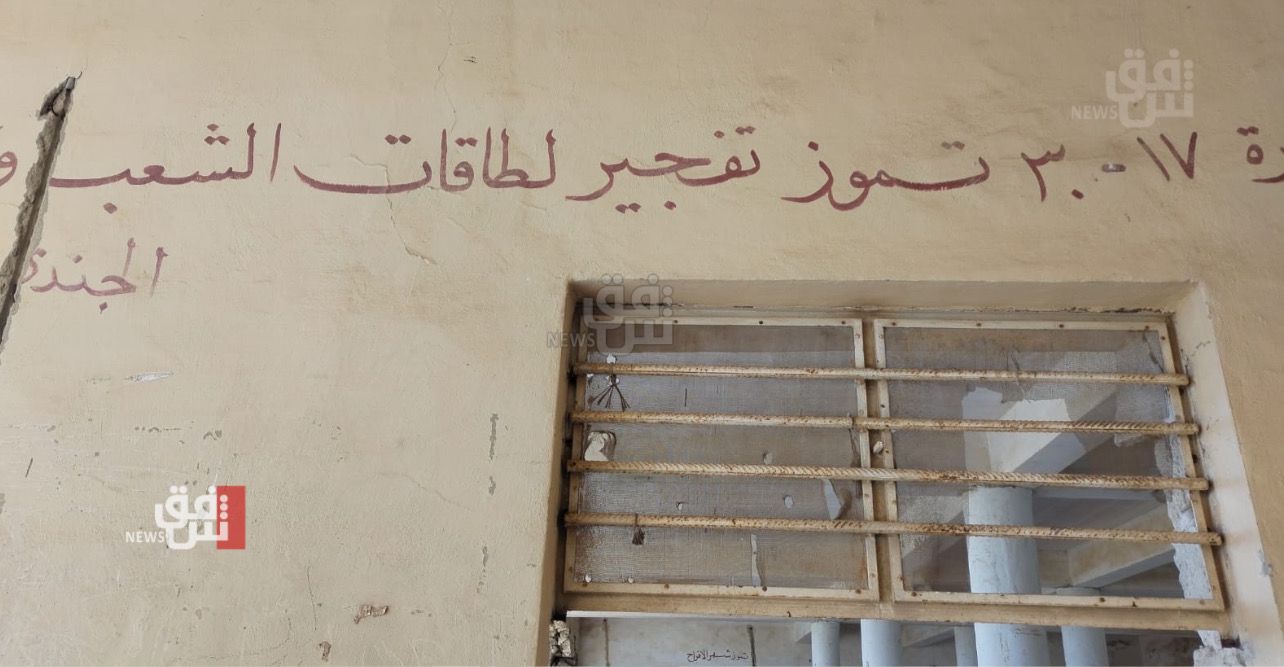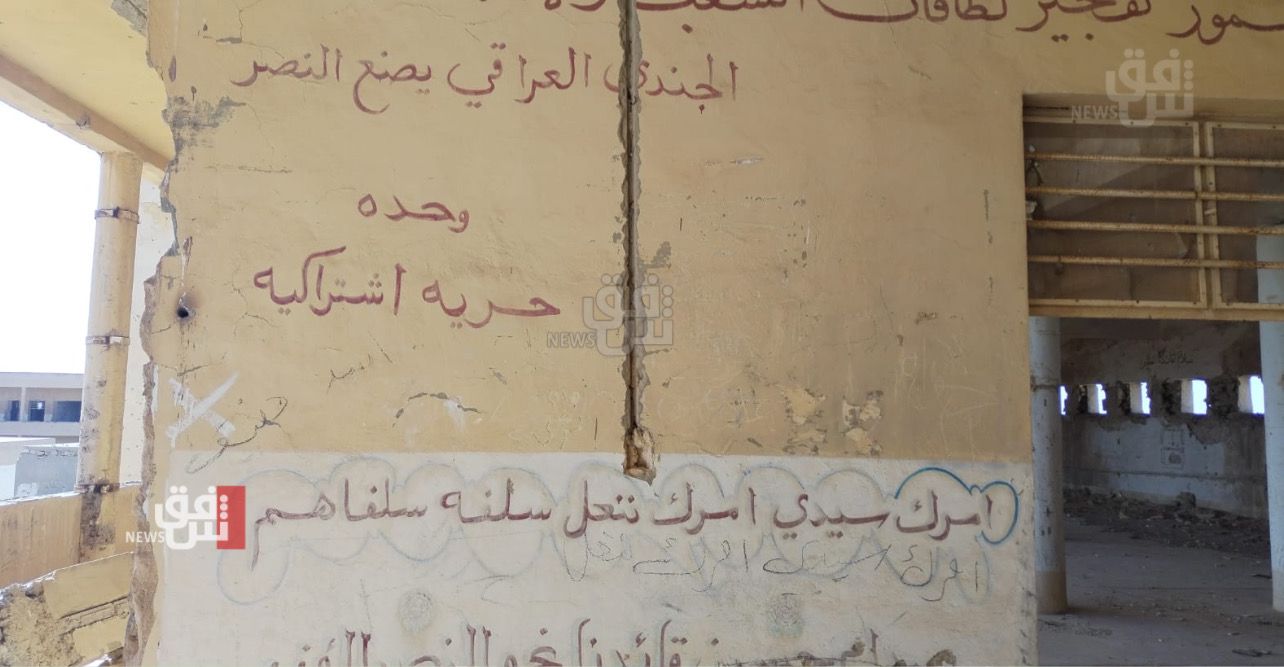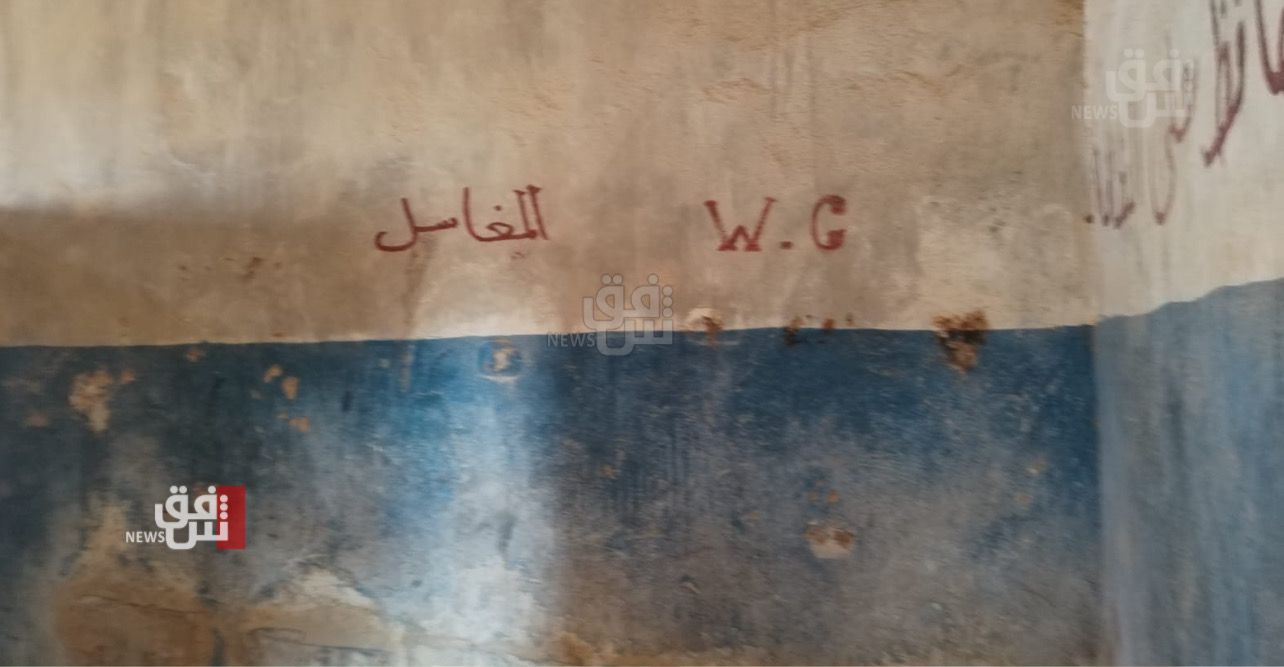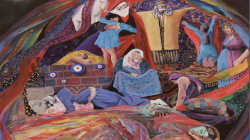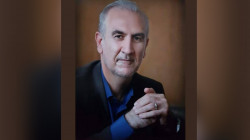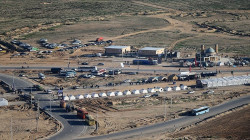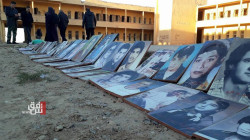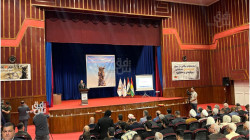Commemorating Nugrat Al-Salman horrors: 44 years Since the plight of over a million Feyli Kurds
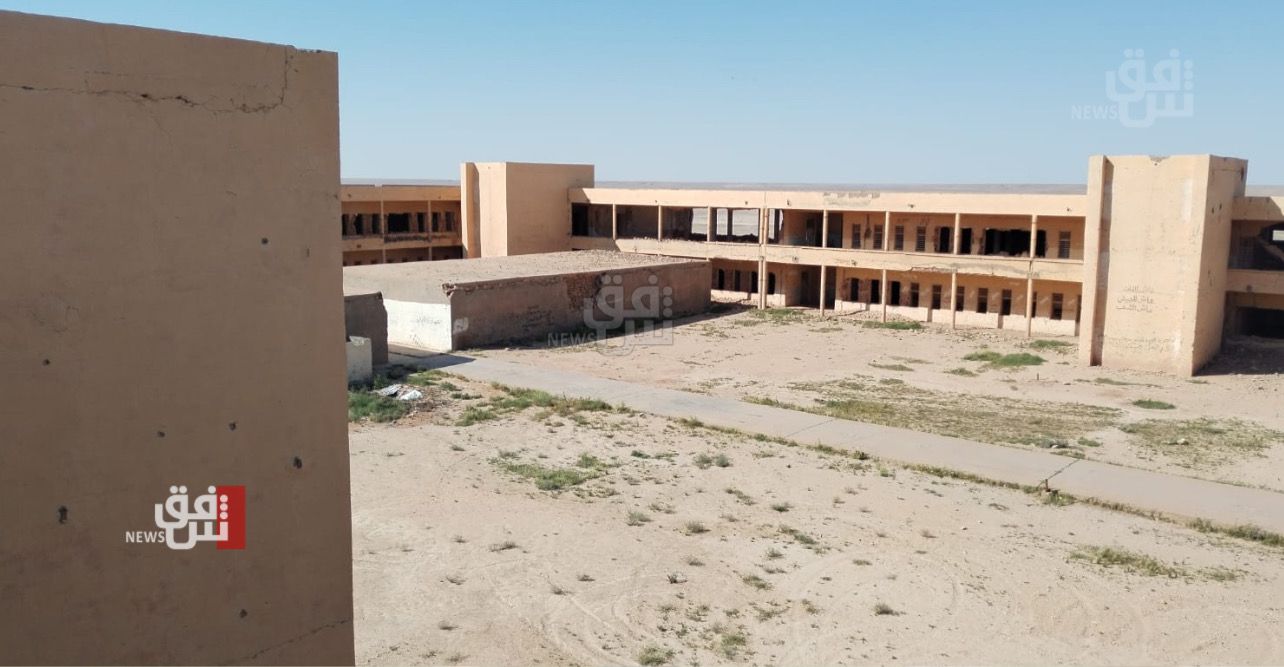
Shafaq News / Feyli Kurds commemorate during the first week of April the Martyrs' Day of the Feyli, recalling the genocide committed against them by the Ba'athist regime.
On this occasion, families of the victims hold commemorative events and mourning sessions.
These days mark the forty-fourth anniversary of the massive displacement of Iraqis from their lands and homes under racist and sectarian pretexts. April 1980 witnessed the beginning of the worst ethnic cleansing operation, commencing on the fourth of the month and continuing thereafter.
These crimes began in 1969 when the Ba'ath Party government, which seized power in a military coup in 1968, launched a campaign of forced deportation and exile targeting Feyli Kurds for racial and sectarian reasons. In 1970, over 70,000 Feylis were deported to Iran, and their Iraqi citizenship was revoked. Many cases of disappearance and execution were reported between 1970 and 1973.
While Iraqis endured numerous stations of fear and persecution during the era of dictatorial rule, some became prominent symbols of injustice and brutality, resulting in the deaths of tens of thousands and leaving physical and psychological scars on survivors.
Nugrat Al-Salman prison is one of those landmarks whose name alone evokes terror and a sense of finality. It is located in the desert of the Salman district in Al-Muthanna governorate southern Iraq.
The designation "City of Prisons" was given to Salman district in 1928 when the British, during their occupation of Iraq, built Salman Castle to repel attacks by Wahhabi movements at the time and as a headquarters for the administration of the southern desert. In 1948, the castle was converted into a prison, and in 1981, another castle was built to serve as a border guard headquarters, later transformed into a prison.
During the presidency of the first president of Iraq under the Ba'ath Party, Ahmad Hassan Al-Bakr, 120 houses were built to accommodate nomadic Bedouins, which later in the 1980s were turned into prisons as well.
The number of displaced and missing Feyli Kurds between 1980 and 1990 amounted to around 1.3 million individuals, with approximately 22,000 young Feyli Kurds imprisoned in Nugrat Al-Salman detention center.
The Salman district is located in the wilderness of Samawah, amidst a large valley, with a population of approximately 9348 people, according to the Ministry of Planning. The majority of them depend on livestock and camel breeding, as well as agriculture, which relies on artesian wells.
PAINFUL MEMORIES
Sabah Al-Jadari recalled the horrors of Nugrat Al-Salman prison, where her brother was detained along with several other relatives, as she used to visit them for "confrontational" visits.
Al-Jadari told Shafaq News Agency that young men, innocent and in the prime of their lives, were arrested solely because of their Feyli Kurdish ethnicity. Her brother, Emad Mohsen Al-Jadari, born in 1966, was a fourth-year student at the College of Administration and Economics at Baghdad University, ranking among the top students. He was arrested during the Sha'ban uprising, and five days later, we learned of his martyrdom on charges of being one of the so-called "destructive saboteurs".
She added that "following his death, our father suffered a stroke and passed away, then our mother developed Alzheimer's and also passed away. Meanwhile, my remaining siblings migrated out of Iraq after those successive tragedies, yet the security forces would still occasionally threaten what remained of our family."
"As for my two cousins, the elder was born in 1963 and the younger in 1962. At the time of their arrest, they were between 14 and 16 years old and were sent to Nugrat Al-Salman.
Al-Jadari recounted what she witnessed during her visits to Nugrat Al-Salman Castle to confront her cousins. "The prison was about 400 km away from Baghdad, so we would leave at night to arrive at the prison in time for the confrontation. I remember seeing twinkling eyes in the barren desert darkness, and when I inquired about them, I was told they were the eyes of wolves."
"Most of those who went for the confrontation were women (aunts, neighbors, and friends), while the families of the prisoners were kept at a distance. Men avoided going to the prison for fear of being detained themselves."
"Visits were conducted in an atmosphere filled with humiliation and degradation, including verbal abuse, and even beatings with batons, despite the visitors being isolated and having no involvement in anything."
Al-Jadari continued her narrative, mentioning that "one of my cousins, Hazem Sheikh Musa Hussein, was killed inside the prison by another detainee after being stabbed in the side with a knife. He died thirsty, refusing to drink water, saying that he wanted to be with Imam Hussein, who died thirsty."
"As for his brother, Kazem Sheikh Musa Hussein, he was released but left with a troubled psyche after witnessing his brother's murder. He remained pursued by security forces, so he fled to Iran. Despite marrying and having children, he still suffers from the persecution and sorrow he experienced. Meanwhile, we still do not know the fate of my brother's body to this day."
"As for my paternal cousin, Ali Hussein Laffa, he was a university professor of high moral standing. He was also arrested and engaged at the time. He was buried in mass graves, and we have not found his body to this day. His sister made a symbolic grave for him in Wadi Al-Salam Cemetery, where she buried his papers and pens."
Al-Jadari emphasized that "she has not received any rights for her martyred brother, on the pretext that his martyrdom was not the result of a political decision. Despite obtaining his death certificate from the Special Security Apparatus, we have been enduring an ongoing ordeal and tragedy since the era of the ousted regime and beyond."
MEMORIAL CEREMONY IN BAGHDAD
A memorial ceremony was held in Baghdad on Saturday to commemorate the Feyli Martyrs' Day under the auspices of the Acting Speaker of the Parliament Mohsen al-Mandalawi in collaboration with the Martyrs Foundation, with the participation of parliamentary, governmental, diplomatic, cultural, and social figures.
Al-Mandalawi, in his speech at the ceremony, affirmed that "the former Iraqi regime executed more than 20,000 individuals from the Feyli Kurds and displaced 130,000 families of this community to Iran in the early 1980s."
Meanwhile, the head of the State of Law Coalition Nouri al-Maliki condemned during his speech at the same ceremony, the failure to abolish the term "subordination" that was used against the Filii Kurds in the former regime, stating that "this community is not a minority."
In addition, the Kurdistan Democratic Party bloc called on the Iraqi government to restore all the rights of the Feyli Kurds, including the money and properties seized by the former regime, to compensate them for the crimes they suffered and grant them Iraqi citizenship.
TRAGEDIES OF THE FEYLI AND BARZANI KURDS
Writer and journalist Amer Musa Al-Sheikh recalled, "The henchmen of the former regime, after the Anfal and Halabja campaigns, used to refer to the Kurds as 'rebels,' taking them to Nugrat Al-Salman, especially the Barzanis and the Anfal survivors. We could recognize them by their clothes and colors despite our young age. In the understanding of southern Iraq, anyone who went to Nugrat Al-Salman was either imprisoned or exiled."
Speaking to Shafaq News Agency, Al-Sheikh added, "The Salman Castle prison was where opponents of the former regime were detained. Sons of Kurdistan, including Barzanis and Feylis, were held there, subjected to torture and starvation. Women were raped, and some were killed in mass graves outside the prison walls."
He continued, "Those who attempted to escape often perished on the way. The prison was deep in the southern desert, 200 kilometers away, devoid of trees or lakes from which escapees could drink or eat. Instead, the area was teeming with wolves and predatory animals, resulting in most prisoners being buried in mass graves."
Notably, in 2010, the Supreme Criminal Court issued judgments regarding the crimes of displacement and seizure of rights of the Feyli Kurds, considering them acts of genocide.
The Iraqi government, on December 8, 2010, pledged to remove the negative effects of targeting the Feyli Kurds, followed by a decision from the Parliament on August 1, 2010, recognizing forced displacement and disappearance of Feyli Kurds as acts of genocide.
Ali Mukhlif, the Salman district administrator, mentioned that "families of the victims started coming to the prison after 2003, especially from the Feyli Kurds, recounting shocking stories of what happened to their families and relatives."
Speaking to Shafaq News Agency, Mukhlif added, "One of the toughest stories was told by a Kurdish mother about her son. She said, 'My son died in prison, and security forces came to bury him. I waited at the castle gate, and half an hour later, I saw my son's hand in a dog's mouth.' This was one of the shocking stories endured by those families."
Mukhlif noted that "the prison is currently abandoned and open to visitors. Requests have been made for it to become a museum to preserve the plight of the Kurds who were imprisoned there."
Noteworthy, the former regime, led by Saddam Hussein for about three decades, forcibly removed thousands of young Feyli Kurds to unknown locations. Their fate remains unknown, with speculation that they perished in detention or were buried alive in mass graves.
The Ba'ath regime began a massive campaign to displace Feyli Kurds, revoke their Iraqi citizenship, and confiscate their properties in the late 1970s and early 1980s.
The Feyli Kurds faced deportation, displacement, arrest, and murder during the rule of former President Ahmed Hassan al-Bakr in 1970 and 1975, followed by Saddam Hussein's regime in 1980.
